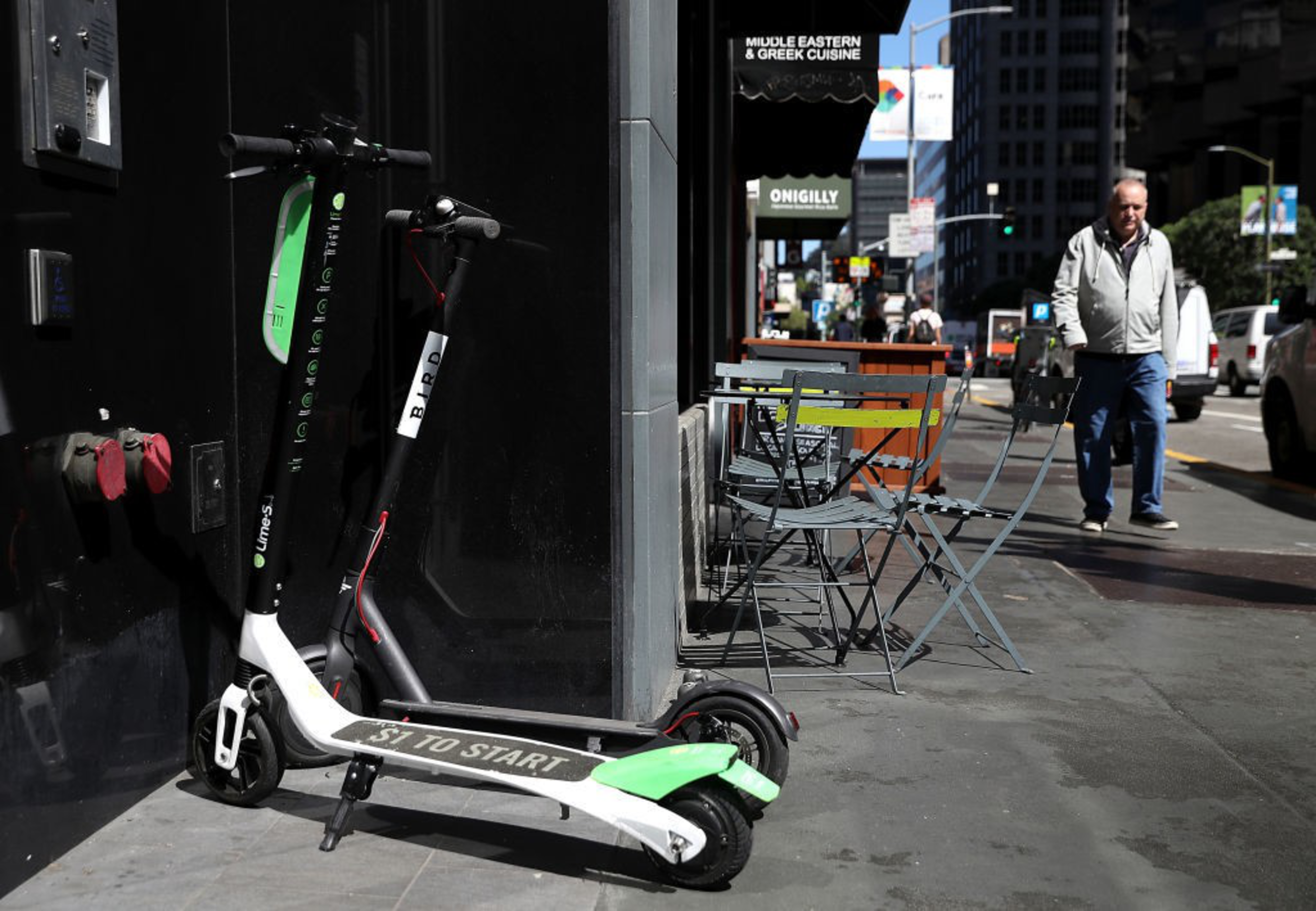With the news that e-scooter company Bird is motoring out of San Francisco, the question turns to what’s next for the vehicles that have become a standard, if not a bit annoying, part of the city’s streetscape.
Bird, which is based in Santa Monica, has said that the tangle of fines, bureaucracy and regulation imposed by the San Francisco Municipal Transportation Agency (SFMTA) means it’s no longer worth it to operate in the city,
Bird informed city officials that it is departing San Francisco, along with its 1,500 permitted scooters. The San Francisco Chronicle first reported (opens in new tab) the news.
Bird has operated in the city since 2018, when a wave of venture capital-backed scooter companies started hitting the streets. Bird, which raised more than $800 million dollars in investment, went public through a Special Purpose Acquisition Company merger (opens in new tab) in November 2021.
Since then, the company’s stock has plummeted by nearly 98%. Bird’s last earnings report showed a $9.8 million net loss, and the company laid off 23% of its staff last year among other cost-cutting measures.
Bird blamed San Francisco’s regulatory structure—particularly its fines—for making it difficult to operate a financially sustainable program. The company said it was in active conversations with city officials on potential regulatory changes to make it easier for e-scooter companies to operate profitably.
Maggie Hoffman, Bird’s vice president of city growth and strategy, said there was “no line of sight” for those discussions and the company’s decision was “truly a last resort.”
Hoffman said San Francisco’s fines for sidewalk riding and misparked scooters were five to six times that of other similar markets. She said Bird argued for technological solutions that have been introduced in other markets, like gated parking only to designated areas and tracking that would slow or give auditory warnings for scooters riding on the sidewalk.
“It’s very resource intensive for us to implement those solutions,” Hoffman said. “That’s why we asked the city if we’re going to make this investment in San Francisco, we really need a break from the fine structure because we can’t justify both the fine expense as well as the technological investment.”
Ultimately, according to Hoffman, the city was not willing to make that trade-off or require all e-scooter operators to follow those standards.
“We love San Francisco, and we don’t want to leave the city,” Hoffman said. “We really do hope to be able to return to the city one day when regulations are more supportive of all stakeholders, from pedestrians to riders to operators.”
SFMTA officials noted that e-scooter companies have been completely banned in a number of cities across the country, including West Hollywood, St. Louis and Boston. Bird scooters were previously impounded and ticketed by San Francisco officials when they started to appear on city streets prior to the development of the permitting program.
In a statement, SFMTA said that it was “disappointed” in Bird’s decision to leave the city, and pointed to a detailed dashboard (opens in new tab) of incidents and citations involving scooters.
“We have seen positive movement from Lime and Spin to develop innovative technologies in response to San Francisco’s regulations to reduce sidewalk riding and promote safe scooter parking—technologies that they are now using elsewhere around the world,” a spokesperson wrote in an email. “We believe micromobility can be a safe, clean, effective way to get around compact cities like San Francisco. But we must also ensure that scooters do not harm the most vulnerable users of our streets.”
For its part, San Francisco-based Lime has used its competitor’s departure to tout its own service and commitment to San Francisco, saying it is committed to providing residents with “safe, affordable, and sustainable transportation options in an equitable way.”
“We will continue to work with the SFMTA and Board of Supervisors to ensure riders continue to enjoy top-tier service,” Charlie Mastoloni, Lime’s senior manager of government relations, said in a statement.
Another e-scooter operator, Spin, echoed Lime’s stated commitment to working with local regulators and said it would seek to recruit Bird’s local staff.
“As we move forward, we are 100% committed to partnering with SFMTA to create a more effective public-private partnership that achieves our shared goals for a sustainable, affordable, and financially viable micromobility service,” said Spin’s CEO, Philip Reinckens.
San Francisco was an epicenter of the venture capital-funded boom in so-called micromobility services, exemplified by the proliferation of e-scooters on the city’s streets.
That was followed by a predictable pattern of traffic and sidewalk obstruction, resident complaints and vandalism (opens in new tab), and action by policymakers to limit their activities.
Part of this was a permitting system that only allowed a select number of vehicles and a select number of companies to operate in San Francisco. With the departure of Bird, its competitors Lime and Spin are still left to operate in the city.
